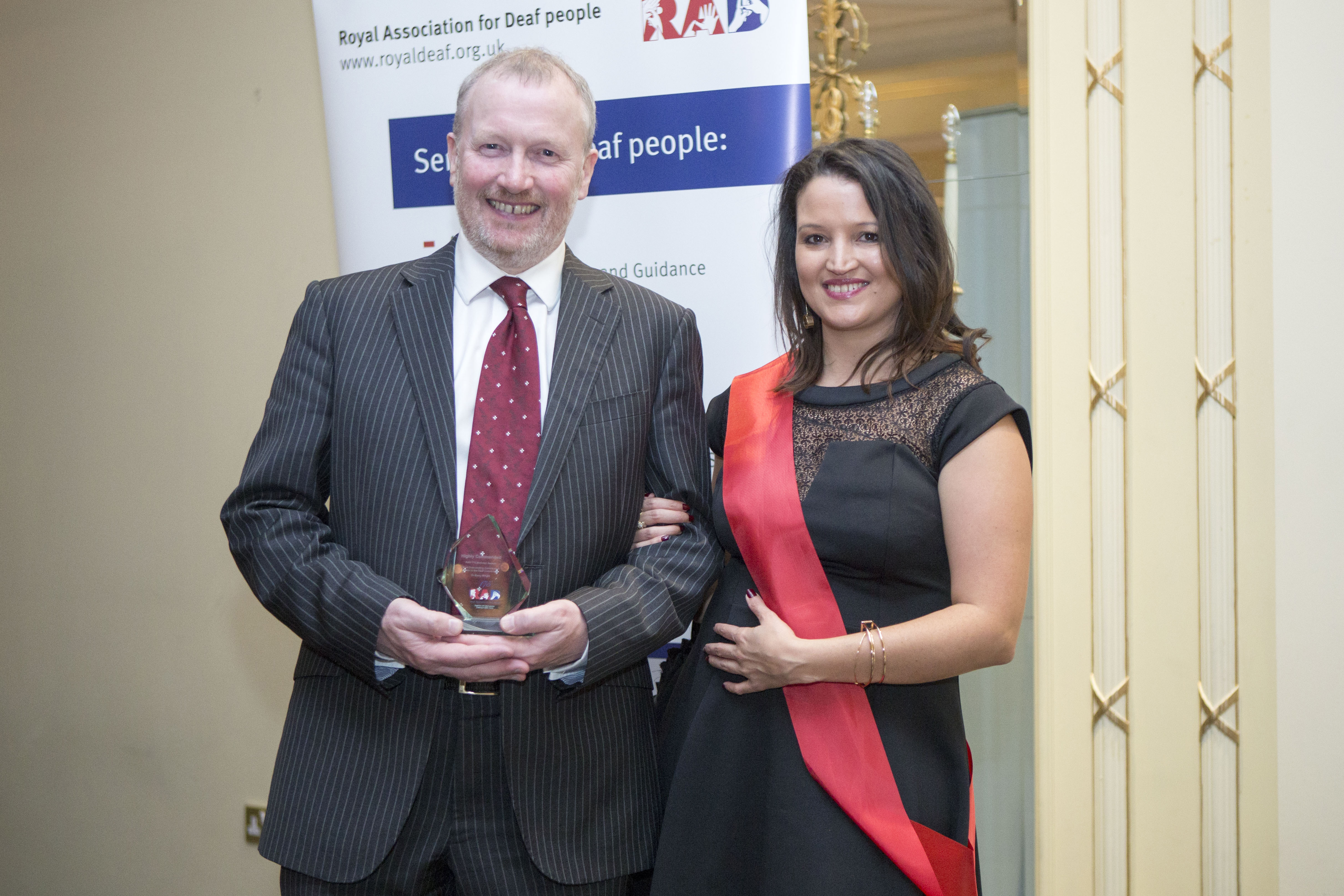Award for Professor Barry Wright
Posted on 22 February 2016

Professor Wright, who is lead for the Child and Adolescent Mental Health research theme in the Department of Health Sciences’ Mental Health and Addiction research group, and also a professor at the Hull York Medical School and the Leeds and York Partnership Foundation Trust, was delighted to get the award in recognition of his longstanding work in setting up the National Deaf CAMHS (Child and Adolescent Mental Health Service) and driving research into improving the assessment of, and care available to, deaf children.
Deaf children are more likely to experience emotional and psychological problems than hearing children and early in his career Prof Wright noticed that only a small number of deaf children had access to mental health services in North Yorkshire.
In 2004 Prof Wright established a pilot service in York which provided access to the first mental health service for deaf children outside London. The success of the pilot in York and another one in Dudley led to Prof Wright leading a national bid to the Government and NHS England to establish a 10 centre service, throughout England, which then became known as National Deaf CAHMS. Specialist mental health services for children are now available in York, Dudley, London, Taunton, Manchester, Newcastle, Cambridge, Oxford, Maidstone and Nottingham, with a further in-patient service available in London.
Prof Wright continues as Chair of the National Co-ordinating Group which oversees the national service, whilst working with Leeds and York Partnership NHS Foundation Trust staff to run the innovative National Deaf CAMHS centres in York, Manchester and Newcastle which provide:
- A focus on the emotional and psychological needs of deaf children and their families
- The opportunity for deaf and hearing staff to work closely together
- An easily accessible referral pathway (e.g. any professional, such as teachers/schools, youth clubs, audiologists, paediatricians etc) can refer children to the service
- Staff trained in understanding deaf development and the interaction between deaf experiences and emotional, social, psychological development and mental health
- Multidisciplinary teams who are focused on the needs of the child
- Interpreters trained in deaf child mental health
Professor Wright said: “I was very pleased to receive the award on behalf of all the staff. We have excellent deaf and hearing staff working together hard to provide high quality services to deaf children and their families."
Professor Wright is currently researching the development of better assessment tools to identify autism in deaf children.
